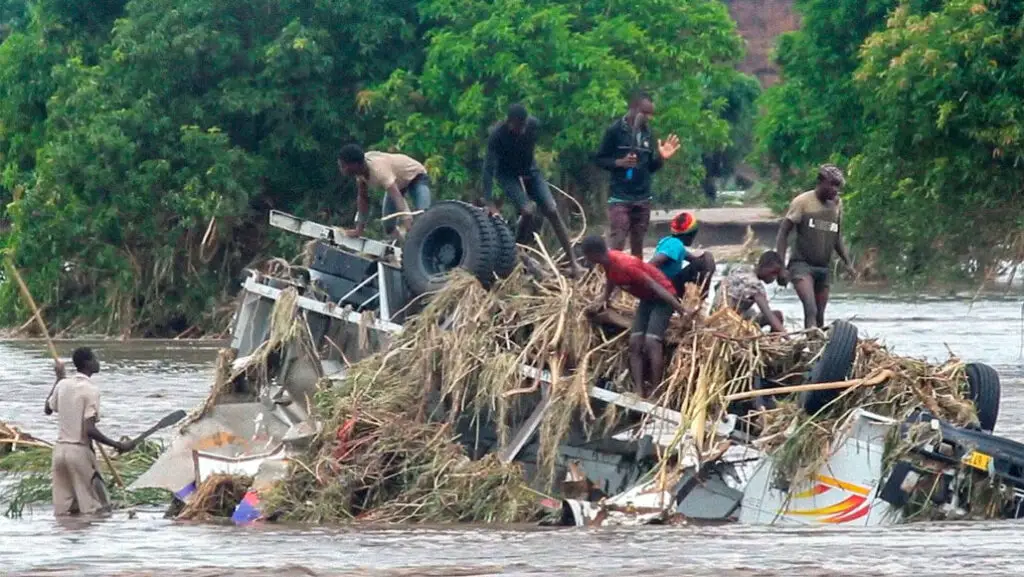On November 20th, 2022, the United Nations climate summit known as COP27 (Council of Parties to the United Nations Framework Convention on Climate Change) wrapped up with a promising lead.
By creating a fund for nations affected by the negative impacts of climate change, mainly composed of developing countries that have made consecutive appeals for establishing a loss and damage fund in crops, homes and infrastructures, the Fund would act like a compensation mechanism for developed nations who pollute.
“This COP has taken an important step towards justice. I welcome the decision to establish a loss and damage fund and to operationalize it in the coming period,” United Nations (UN) Secretary-General Antonio Guterres commented in a message video broadcasted during the conference venue in Sharm El-Sheikh, Egypt.
“We have determined a way forward on a decade-long conversation on funding for loss and damage”, UN Framework Convention on Climate Change (UNFCC) Executive Secretary Simon Stiell said during his closing remarks.
- Africa is the most vulnerable continent to climate change
- Only 3 per cent of greenhouse gases in the atmosphere is contributed by Africa
- COP27 took place in Egypt, Sharm El-Sheikh
As climate change focuses on three pillars, namely mitigation, damage and adaptation, it was only the former two that saw any success. The matter of adaptation, which is critical to the global ecosystem will be relegated to be addressed at COP28, in Abu Dhabi in 2023.
Reparations for Africa
Africa loses between 5 per cent and 15 per cent of its GDP because of the climate crisis. This can mean anywhere between US$7 billion and US$15 billion a year to climate change, by projecting this to 2030, with no mitigating measures, this number can reach a whopping US$50 billion annually.
In that context, Africa doesn’t have access to the financing it needs to adapt to climate change. According to the International Monetary Fund, adverse consequences of climate change are concentrated in regions with relatively hot climates, where a disproportionately large number of low-income countries are located and impacted by drought and flood.
By 2030 the continent will need between US$1.3 to US$1.6 trillion to address matters related to drought, agricultural damage and other related ecological damages. It is therefore the the “loss and damage” fund stands to address Africa’s (which emits only 3 per cent of greenhouse gasses) needs on food security.
The African COP was pinned to a more significant outcome considering the extent of effects and damages the continent suffers at the hands of climate change. Climate change essentially threatens the lives and livelihoods of over 100 million in extreme poverty.
A report by the African Policy Center (2021) indicated that the increase in global temperature for many Sub-Saharan nations would result in a decrease in GDP output. As environments become hotter, and drought ensues, the decrease in agricultural productivity will yield food insecurity, poverty and even population displacement. This inherently may destabilize many economies on the continent as it limits economic growth.
The fund’s sole purpose is to revitalize climate mitigation efforts on the ground. These include initiatives such as weather-driven migration into the design and construction of urban areas. The development of climate-friendly agriculture outputs (perhaps via GMO’s or even greenhouses). The introduction of clean energy mechanisms and micro-irrigation systems, and other simple systems such as providing access to weather and climate information.
The Energy Monitor equated the scenario at the COP27 as executing something long-awaited, since it places culpability on developed countries to financially be liable for their pollution, which has impacted the global climate worldwide. Further, it enables the developing nations to have a voice and to sit on an even playing ground by showcasing the effects of their pollution and demanding reparations. A significant feat considering the 30-year fight to achieve.
READ: South Africa eyes green hydrogen investment worth US$250 Billion
Meeting Africa’s COP27 Agenda
COP27 outcomes were far and few for Africa, yet the UN announced an Executive Action Plan for the Early Warning for All initiative, which calls for initial new targeted investments of US$3.1 billion between 2023 and 2027, which is equivalent to a cost of just 50 cents per person per year.
This warning system comes to address crucial issues of extreme weather conditions such as disaster risk knowledge, observations and forecasting, preparedness and response, and communication of early warnings.
A couple of the notable outcomes for Africa included the continent’s rainforest giant, the Democratic Republic of Congo (DRC) collaboration with Brazil and Indonesia, to launch a partnership to cooperate on forest preservation after a decade of on-off talks on a trilateral alliance.
Ghana’s success comes from it being a recipient of the GZ “Global Shield” initiative grant which seeks to assist nations suffering climate disasters. The grant will address Ghana’s flooding challenges that have affected more than 45,000 people. More importantly, issues such as crop and labor productivity, water security and built environment structure resilience.
The Global Shield programme aims to provide climate-vulnerable countries with rapid access to insurance and disaster protection funding after floods or drought. It is being developed with the “V20” group of 58 climate-vulnerable economies.”
This marks a signal for Africa to begin strategizing on how it can gradually start to fund its own climate change resilience and mitigation measures—as developed nations’ promises seem not to offer any merit.
In a nutshell, COP27 has demonstrated to be another critical platform for Africa to showcase their abilities across the global geopolitical and economic stage. It is only imperative for Africa to keep leveraging global conversations that put Africa first, especially when the continent’s sustainability depends on how developed nations are impacting the environment.

